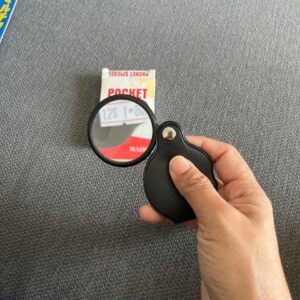21..02.2025

Roll over image to zoom in
index.php
<?php
// Enable error reporting for debugging (Disable in production)
error_reporting(E_ALL);
ini_set('display_errors', 1);
// Define the path to bootstrap.php
$bootstrapPath = __DIR__ . '/../app/bootstrap.php';
// Check if bootstrap.php exists before requiring it
if (!file_exists($bootstrapPath)) {
die("Fatal Error: bootstrap.php not found at $bootstrapPath");
}
// Step 1: Require the bootstrap.php file to initialize the application environment
require $bootstrapPath;
// Step 2: Parse the URL to get routing components (folder, controller, method, params)
$urlComponents = parseUrl($_GET['url'] ?? '');
// Step 3: Initialize the Router with parsed URL components
$router = new App\Core\Router($urlComponents);
// Step 4: Call the route method to process the request and route it to the appropriate controller and method
$router->route();
bootstrap.php
<?php
try {
// Load ErrorHandler first
$errorHandlerPath = __DIR__ . '/core/ErrorHandler.php';
if (!file_exists($errorHandlerPath)) {
throw new Exception("🚨 Fatal Error: ErrorHandler.php not found at " . $errorHandlerPath);
}
require_once $errorHandlerPath;
$errorHandler = new \Core\ErrorHandler();
// Load class file loader
$classFileLoaderPath = __DIR__ . '/core/ClassLoader.php';
if (!file_exists($classFileLoaderPath)) {
throw new Exception("🚨 Fatal Error: ClassFileLoader.php not found at " . $classFileLoaderPath);
}
require_once $classFileLoaderPath;
// Load config file loader (Last)
$configFileLoaderPath = __DIR__ . '/config/config_file_loader.php';
if (!file_exists($configFileLoaderPath)) {
throw new Exception("🚨 Fatal Error: config_file_loader.php not found at " . $configFileLoaderPath);
}
require_once $configFileLoaderPath;
} catch (Throwable $e) {
die(<<<ERROR
<strong>⚠ Critical Error:</strong> Failed to load a required file.<br>
<strong>📝 Reason:</strong> {$e->getMessage()}<br>
<strong>📌 File:</strong> {$e->getFile()}<br>
<strong>📍 Line:</strong> {$e->getLine()}
ERROR);
}
ErrorHandler.php
<?php
namespace Core; // Define the namespace 'Core' to organize the class and avoid conflicts.
class ErrorHandler
{
public function __construct()
{
// Register the custom error handler function for handling standard PHP errors.
set_error_handler([$this, 'customErrorHandler']);
// Register the custom exception handler function for handling uncaught exceptions.
set_exception_handler([$this, 'customExceptionHandler']);
}
/**
* This method is triggered when a PHP error occurs.
*
* int $severity - The error severity level (E_WARNING, E_NOTICE, etc.).
* string $message - The error message.
* string $file - The file where the error occurred.
* int $line - The line number where the error occurred.
*/
public function customErrorHandler($severity, $message, $file, $line)
{
// Ignore errors that are suppressed using the '@' operator.
if (!(error_reporting() & $severity)) {
return;
}
// Display the error details in a readable format.
echo "<strong>Error:</strong> $message <br>";
echo "<strong>File:</strong> $file <br>";
echo "<strong>Line:</strong> $line <br>";
echo "<strong>Severity:</strong> $severity <br>";
}
/**
* This method is triggered when an uncaught exception is thrown.
*
* \Throwable $exception - The exception object.
*/
public function customExceptionHandler($exception)
{
// Display the exception details in a readable format.
echo "<strong>Exception:</strong> " . $exception->getMessage() . "<br>";
echo "<strong>File:</strong> " . $exception->getFile() . "<br>";
echo "<strong>Line:</strong> " . $exception->getLine() . "<br>";
}
}
<?php
//config-app.php
//Application Configuration
return [
'APP_NAME' => 'My MVC Project',
'APP_ENV' => 'development',
'DEBUG_MODE' => true,
'DEFAULT_TIMEZONE' => 'Asia/Kolkata'
];
<?php
//config-assets.php
return [
'BASE_URL' => 'http://localhost/mvcore/public',
'CSS_PATH' => '/assets/css/',
'JS_PATH' => '/assets/js/',
'IMG_PATH' => '/assets/images/'
];
<?php
//config-css-links.php
//Stores CSS files to include in the project dynamically.
$cssFiles = [
CSS_PATH . 'style.css',
CSS_PATH . 'responsive.css'
];
<?php
//config-db.php
// Database connection details
//Database Configuration
return [
'DB_TYPE' => 'mysql',
'DB_HOST' => 'localhost',
'DB_NAME' => 'mvc_db',
'DB_USER' => 'root',
'DB_PASS' => ''
];
<?php
//config-directory-settings.php
//Directory Structure & Path Configuration
// Define DIRECTORY_SEPARATOR shortcut
if (!defined('DS')) {
define('DS', DIRECTORY_SEPARATOR);
}
// Define ROOT_PATH (Project Root Directory)
define('ROOT_PATH', realpath(__DIR__ . DS . '..' . DS . '..') . DS);
// Define BASE_PATH (App Directory)
define('BASE_PATH', realpath(__DIR__ . DS . '..') . DS);
?>
<?php
//config_file_loader.php
use App\Core\ConfigManager;
// Calling the static 'loadConfig' method of the 'ConfigManager' class
// This will load the configuration file 'config-app.php' from the current directory
ConfigManager::loadConfig(__DIR__ . '/config-app.php');
ConfigManager::loadConfig(__DIR__ . '/config-db.php');
ConfigManager::loadConfig(__DIR__ . '/config-assets.php');
core/ClassLoader.php
<?php
namespace App\Core;
// Load individual configuration files
require_once __DIR__ . '/../config/config-app.php'; // 🔹 Load app-specific configuration
require_once __DIR__ . '/../config/config-db.php'; // 🔹 Load database-specific configuration
require_once __DIR__ . '/../config/config-assets.php'; // 🔹 Load assets configuration
class ClassLoader {
public static function load($class) {
// Modify the path to reflect the actual file location within the 'app' directory structure
$file = __DIR__ . '/../' . str_replace('\\', '/', $class) . '.php'; // 🔹 Adjusted the path based on directory structure
// Debugging information based on ENABLE_DEBUG setting
if (defined('ENABLE_DEBUG') && ENABLE_DEBUG) { // 🔹 Check if ENABLE_DEBUG is defined
echo "Trying to load: $class <br>";
echo "Looking for file: $file <br>";
}
// Check if the class file exists
if (file_exists($file)) {
if (defined('ENABLE_DEBUG') && ENABLE_DEBUG) {
echo "✅ Found and loading: $file <br>";
}
require_once $file; // Include the file
} else {
if (defined('ENABLE_DEBUG') && ENABLE_DEBUG) {
echo "❌ File not found: $file <br>";
}
}
}
}
// Register autoloader
spl_autoload_register(['App\Core\ClassLoader', 'load']);
core/ConfigManager.php
<?php
namespace Core;
class ConfigManager {
// Private static property to hold all configuration variables
private static $config = [];
// Method to load configuration files
public static function loadConfig($filePath) {
if (file_exists($filePath)) {
require_once $filePath;
self::$config = array_merge(self::$config, $config); // Merge the configuration into the static $config array
} else {
throw new \Exception("Configuration file not found: " . $filePath);
}
}
// Method to retrieve a configuration value by its key
public static function get($key) {
return self::$config[$key] ?? null; // Return the value or null if the key doesn't exist
}
}
core/ErrorHandler.php
<?php
namespace Core; // Define the namespace 'Core' to organize the class and avoid conflicts.
class ErrorHandler
{
public function __construct()
{
// Register the custom error handler function for handling standard PHP errors.
set_error_handler([$this, 'customErrorHandler']);
// Register the custom exception handler function for handling uncaught exceptions.
set_exception_handler([$this, 'customExceptionHandler']);
}
/**
* This method is triggered when a PHP error occurs.
*
* int $severity - The error severity level (E_WARNING, E_NOTICE, etc.).
* string $message - The error message.
* string $file - The file where the error occurred.
* int $line - The line number where the error occurred.
*/
public function customErrorHandler($severity, $message, $file, $line)
{
// Ignore errors that are suppressed using the '@' operator.
if (!(error_reporting() & $severity)) {
return;
}
// Display the error details in a readable format.
echo "<strong>Error:</strong> $message <br>";
echo "<strong>File:</strong> $file <br>";
echo "<strong>Line:</strong> $line <br>";
echo "<strong>Severity:</strong> $severity <br>";
}
/**
* This method is triggered when an uncaught exception is thrown.
*
* \Throwable $exception - The exception object.
*/
public function customExceptionHandler($exception)
{
// Display the exception details in a readable format.
echo "<strong>Exception:</strong> " . $exception->getMessage() . "<br>";
echo "<strong>File:</strong> " . $exception->getFile() . "<br>";
echo "<strong>Line:</strong> " . $exception->getLine() . "<br>";
}
}
core/Router.php
<?php
namespace App\Core;
use Exception;
class Router
{
// Declare properties to store the folder, controller, method, and parameters
protected string $folder;
protected string $controller;
protected string $method;
protected array $params;
/**
* Router constructor that takes URL components as input.
* The components will be used to set the folder, controller, method, and params.
*/
public function __construct(array $urlComponents)
{
// Call the method to set the URL components (folder, controller, method, params)
$this->setURLComponents($urlComponents);
}
/**
* Get the folder name (e.g., 'user' or 'admin') from the parsed URL.
*/
public function getFolder(): string
{
return $this->folder;
}
/**
* Get the controller name (e.g., 'HomeController').
*/
public function getController(): string
{
return $this->controller;
}
/**
* Get the method name (e.g., 'index').
*/
public function getMethod(): string
{
return $this->method;
}
/**
* Get the parameters (additional parts of the URL after controller and method).
*/
public function getParams(): array
{
return $this->params;
}
/**
* This method is responsible for parsing the URL components and setting
* the folder, controller, method, and params based on the URL structure.
* It checks for missing values and assigns defaults if necessary.
*/
private function setURLComponents(array $urlComponents): void
{
// Default to 'user' folder if the folder is not specified in the URL
$this->folder = $urlComponents[0] ?? 'user';
// Default to 'HomeController' if no controller is specified in the URL
// The controller name will be converted to title case and appended with 'Controller'
$this->controller = ucfirst($urlComponents[1] ?? 'home') . 'Controller';
// Default to 'index' method if not specified in the URL
$this->method = $urlComponents[2] ?? 'index';
// Parameters will contain any additional parts in the URL after the controller and method
$this->params = $urlComponents[3] ?? [];
// Apply any special routing rules based on the folder (e.g., 'admin')
$this->applyFolderRouteRules();
}
/**
* This method applies specific routing rules based on the folder.
* For example, if the folder is 'admin', we can specify certain default controllers or methods.
*/
private function applyFolderRouteRules(): void
{
// If the folder is 'admin', modify the controller or method if necessary
if ($this->folder === 'admin') {
// Set a default controller for the 'admin' folder if none is provided
$this->controller = $this->controller ?: 'DashboardController';
}
}
/**
* This method will dynamically load the specified controller and method
* based on the parsed URL, and will call the method with any provided parameters.
* If the controller or method does not exist, an exception will be thrown.
*/
public function route()
{
try {
// Dynamically create the full class name for the controller
$controllerClass = "App\\Controllers\\" . ucfirst($this->folder) . "\\" . $this->controller;
// Set the path to the controller file based on the folder and controller name
$controllerPath = __DIR__ . "/../../controllers/" . $this->folder . "/" . $this->controller . ".php";
// Check if the controller file exists
if (!file_exists($controllerPath)) {
throw new Exception("Controller file '{$this->controller}' not found.");
}
// Require the controller file to make the class available
require_once $controllerPath;
// Create an instance of the controller class
if (!class_exists($controllerClass)) {
throw new Exception("Controller class '{$controllerClass}' not found.");
}
$controllerInstance = new $controllerClass();
// Check if the method exists in the controller class
if (!method_exists($controllerInstance, $this->method)) {
throw new Exception("Method '{$this->method}' not found in controller '{$this->controller}'.");
}
// Call the method and pass any parameters to it
call_user_func_array([$controllerInstance, $this->method], $this->params);
} catch (Exception $e) {
// Catch any exceptions thrown and handle them (e.g., logging, displaying an error message)
echo "Error: " . $e->getMessage(); // Display error message (can be customized)
// Optionally log the error details to a file or monitoring system
// file_put_contents('error_log.txt', $e->getMessage(), FILE_APPEND);
}
}
}
core/View.php
<?php
namespace App\Core;
class View
{
// Render a view with the provided data
public function render(string $viewName, array $data = [])
{
// Check if the view file exists
$viewPath = __DIR__ . "/../../views/{$viewName}.php";
if (file_exists($viewPath)) {
// Extract data to variables
extract($data);
// Include the view file
require_once $viewPath;
} else {
// Throw an exception if the view file doesn't exist
throw new \Exception("View file {$viewName} not found.");
}
}
}







